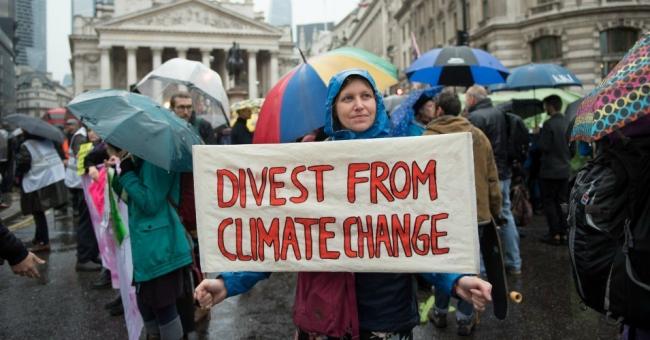December 10, 2019
The Washington Post downplayed the most hopeful findings of their own poll on climate action, so we highlighted those findings for them.
Last month, The Washington Post reported on the results of a poll it conducted with the Kaiser Family Foundation earlier this year. The poll had remarkable finding: nearly half—46 percent—of American adults believe the U.S. needs to “drastically reduce” fossil fuel use in the near future to address the climate crisis, while another 41 percent favor a more gradual reduction.
If you think the result was only about political ideology in a highly polarized country, you’d only be partly right—a narrow majority of 51 percent of Republicans surveyed support phasing out fossil fuels, albeit at a slower pace.
In other words, a solid seven-eighths of U.S. adults—including half of the supporters of the unabashedly pro-fossil fuel Republican Party—support a phase-out of fossil fuels. And that population is based in the world’s largest oil and gas producer, third largest coal producer, and the only country to leave the universally-adopted Paris Climate Agreement.
The poll provided no context on how much the government spends on the military, or fossil fuel subsidies, or corporate subsidies more broadly.
You’d expect a media outlet to treat this as the immensely newsworthy (and headline-worthy) finding that it is – especially if that media outlet commissioned the poll! Yet, The Washington Post buried these numbers in the 14th and 15th paragraphs of the story about the poll’s findings on attitudes around fiscal policy and national climate action, one of the multiple articles they published around their survey.
How did the Post headline actually read? “Americans like Green New Deal’s goals, but they reject paying trillions to reach them.”
This assertion, while not outright false, certainly is misleading.
The poll had a single vaguely-worded question about the price tag for a national climate action plan, which asked whether respondents supported raising federal spending by unspecified “trillions.” Sixty-seven percent of respondents said they were opposed.
But the poll provided no context on how much the government spends on the military, or fossil fuel subsidies, or corporate subsidies more broadly. Pollsters gave respondents no specifics on the amount of “trillions” we’re talking about, or how they compare to the overall federal budget or the country’s GDP. They didn’t ask respondents whether they would support such a spending increase if it were paid for entirely by revenue increases.
More than two-thirds of Americans—68 percent—support raising taxes on the wealthy to pay for climate action.
What else did the poll find? More than two-thirds of Americans—68 percent—support raising taxes on the wealthy to pay for climate action. Sixty percent support raising taxes on fossil fuel burning companies “even if that may lead to increased electricity and transportation prices.” The Post chose to ignore both findings entirely in the article.
Unsurprisingly, only 47 percent support a monthly $2 tax increase on residential utility bills, and only 35 percent support an increase in the gas tax 10 cents per gallon.
A more accurate portrayal of the poll results might say that U.S. adults support paying for climate action by raising taxes on corporations and the wealthy, but they don’t want to raise taxes for working people. They might be uncomfortable spending “trillions” without any context or specifics.
American adults support fairness. But there’s little evidence that they support austerity, despite what the the headline of the Post may say.
Why, then, did the Post bury some of the most significant findings of their own poll, and highlight the most misleading finding instead?
I won’t speculate too much—that’s for The Washington Post to answer. But neoliberal political biases that equate government spending with waste, while evading or ignoring issues of tax fairness, run deep.
A more objective—and hopeful—reading might instead emphasize that the vast majority of Americans support phasing out fossil fuels. Large majorities also support other climate action and social justice objectives, like reaching 100 percent renewable electricity in 10 years (69 percent support), a job guarantee with good wages for all workers (78 percent support), energy efficiency upgrades for all buildings in the country (70 percent support), and major new regulations on businesses (61 percent support). A majority (55 percent) support a reduction of coal mining jobs, even though the poll failed to provide context about transition programs for displaced workers.
Two poll findings complicate the premise of the Post’s headline. Two-thirds of respondents support increased government infrastructure spending on climate resilience for communities who are vulnerable to disasters, and two-thirds also support a government program for universal health care.
Polls aren’t always trustworthy. But to the extent that they reveal public opinions, this one shows large majorities of Americans want serious governmental action on climate change that incorporates social justice and workers’ rights, all paid for by progressive taxation. They want more regulation of corporations and more government spending on community resilience. And they support a government program for universal health care.
This is great news for those of us who are organizing for a just transition from our extractive fossil-fuel driven economy to a safe, healthy future for all, Washington Post headlines be damned.


